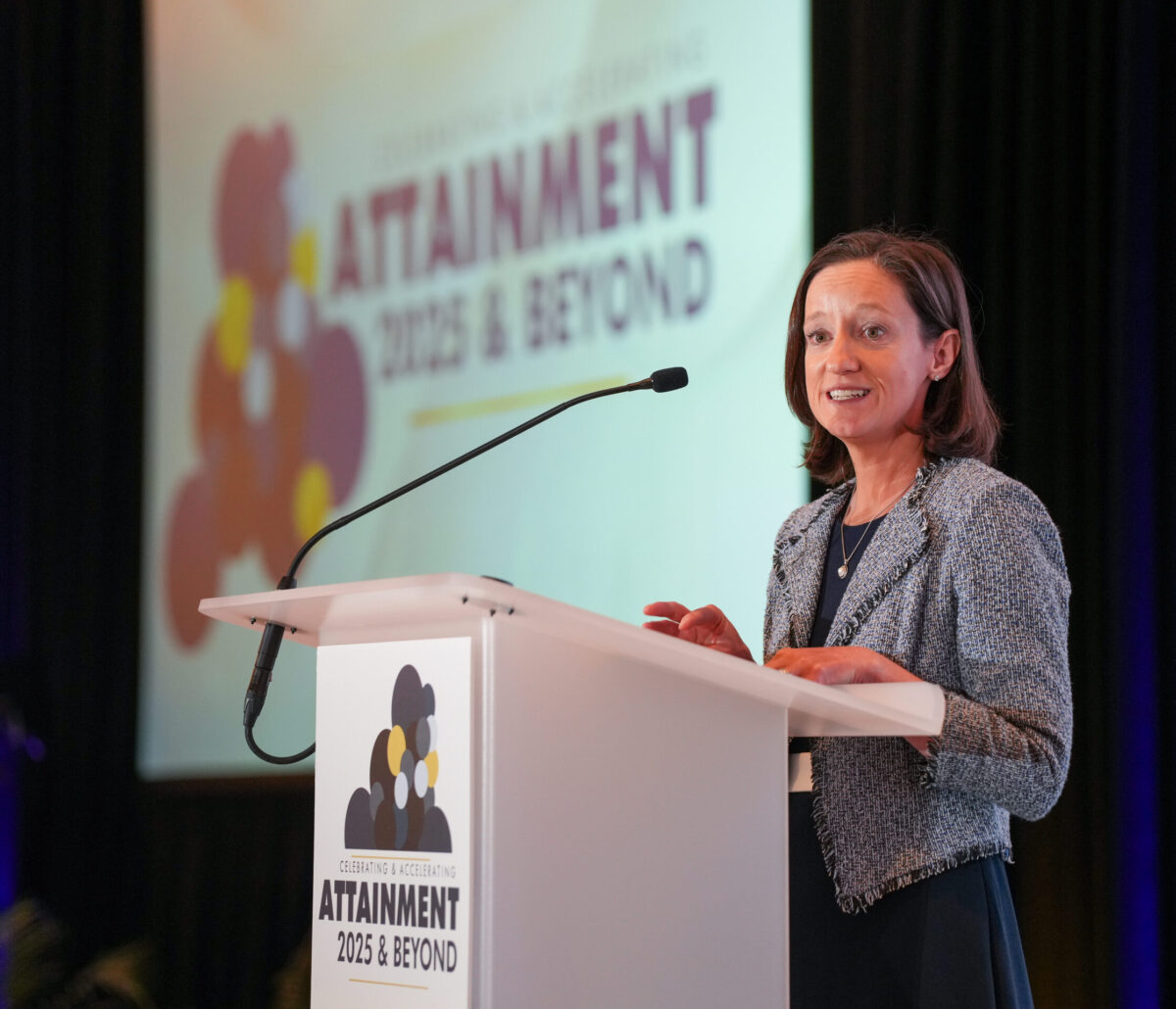Teams of researchers use IHEP’s Equitable Value Explorer to develop new data-driven insights about improving postsecondary value

Washington, DC (February 21, 2024) – A new research series, developed by the Institute for Higher Education Policy (IHEP) and in partnership with field-based researchers, explores critical questions about equitable student outcomes and sheds new light on the economic benefits of earning a college degree. The first three papers in the series, “Elevating Equitable Value: Investigating Economic Outcomes of Postsecondary Education” were released recently .
“The launch of the Elevating Equitable Value series marks a step forward for the Equitable Value Movement,” said IHEP President Mamie Voight. “Higher education remains a powerful engine of opportunity for students, but our current system does not produce equitable outcomes. High-quality research can inform policy and practice reforms that dismantle barriers to college access and success and ensure high-quality, high-value postsecondary education is within reach for every student. We’re heartened more scholars are drawing from IHEP’s Equitable Value Explorer to glean insights about the conditions that foster the equitable delivery of postsecondary value.”
To seed the development of these insights, IHEP worked with three teams of researchers who crafted studies exploring how different factors affect institutions’ delivery of equitable student outcomes. Each study leverages data from the Equitable Value Explorer, an interactive tool that allows users to compare post-college earnings across institutions and student populations. The tool measures the economic value that institutions deliver to students using a series of thresholds developed by the Postsecondary Value Commission. The thresholds provide benchmarks for measuring the economic value students receive relative to earnings of others in their state.
The Elevating Equitable Value series offers promising insights for institutional and policy leaders seeking to improve the delivery of equitable postsecondary value to students. The series’ first three papers explore diverse aspects of equitable value.
Elevating Equitable Value series research findings:
- Adjunct Labor and Inequality in Higher Education by Frederick Tucker of the City University of New York examines the impact of adjunct and part-time faculty composition on student outcomes, particularly at Minority-Serving Institutions and colleges serving a large share of Pell Grant recipients. This research suggests that institutions with higher proportions of tenured, tenure-track, and part-time adjunct faculty typically see stronger economic outcomes among former students, indicating greater postsecondary value, compared to institutions who rely more heavily on full-time adjuncts.
- Place Matters: Exploring Geographic Variation by Roman Ruiz and Adam Hearn of the American Institutes for Research investigates how regional economic factors influence community colleges’ ability to meet the Postsecondary Value Framework’s economic value thresholds. Findings suggest that students who attend community colleges earn an additional $2,800 annually, or about 7 percent more, compared to those with a high school degree in their region. Community colleges serving higher shares of women, Pell Grant recipients, students from historically underrepresented racial/ethnic groups, and adult learners typically deliver lower economic value, despite their crucial role in supporting students from historically marginalized backgrounds. However, improving institutional completion rates and creating clear pathways towards bachelor’s degrees—such as by offering baccalaureate programs with community college settings and creating robust transfer pipelines—can increase community colleges’ economic value.
- Economic Returns Across Rural-Serving Colleges by Shadman Islem and Angela Boatman of Boston College analyzes earnings outcomes in rural areas, comparing the economic value provided by rural-serving institutions to their urban and suburban counterparts. The study finds that while median earnings are somewhat lower for students attending rural-serving institutions (RSIs) than those at non-RSIs, RSIs also tend to be more affordable and the majority of these institutions provide students with a minimum economic return after factoring in postsecondary education costs.
Additional papers in the Elevating Equitable Value series will explore topics including financial well-being among students, the economic value provided by Hispanic-Serving Institutions, and workforce outcomes for students in Michigan. By informing policy and practice changes, IHEP is driving innovation in higher education so that all students can reach their education and career goals, especially Black, Latinx, Indigenous, Asian American, Native Hawaiian, and Pacific Islander students and students living with low incomes.
Visit the Equitable Value Explorer for more information.
###


